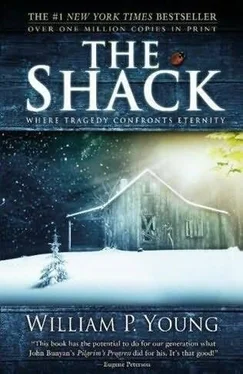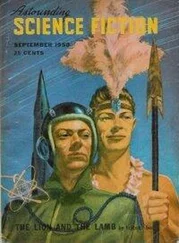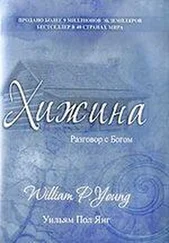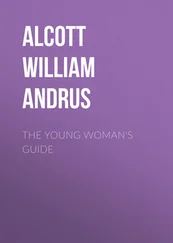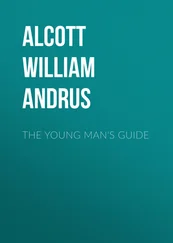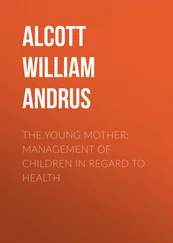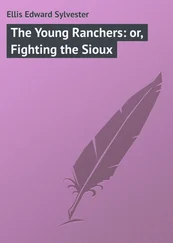“So why did you hide it?” Mack inquired.
“Why do children love to hide and seek? Ask any person who has a passion to explore and discover and create. The choice to hide so many wonders from you is an act of love that is a gift inside the process of life.”
Mack gingerly reached out and took the poisonous twig. “If you had not told me this was safe to touch, would it have poisoned me?”
“Of course! But if I direct you to touch, that is different. For any created being, autonomy is lunacy. Freedom involves trust and obedience inside a relationship of love. So, if you are not hearing my voice, it would be wise to take the time to understand the nature of the plant.”
“So why create poisonous plants at all?” Mack queried, handing back the twig.
“Your question presumes that poison is bad; that such creations have no purpose. Many of these so-called bad plants, like this one, contain incredible properties for healing or are necessary for some of the most magnificent wonders when combined with something else. Humans have a great capacity for declaring something good or evil, without truly knowing.”
Obviously the short break, which had been for Mack’s sake, was over and Sarayu thrust a hand shovel at Mack, picking up the rake. “To prepare this ground, we must dig up the roots of all the wonderful growth that was here. It is hard work, but well worth it. If the roots are not here, then they cannot do what comes naturally and harm the seed we will plant.”
“Okay,” Mack grunted as they both got down on their knees alongside the freshly cleared plot. Sarayu was somehow able to reach deep under the ground and find the ends of the roots, bringing them effortlessly to the surface. She left the shorter ones for Mack, who used the hand shovel to dig under and pull them up. They then shook the dirt from the roots and threw them onto one of the piles that Mack had earlier raked together.
“I’ll burn those later,” she said.
“You were talking earlier about humans declaring good and evil without knowledge?” Mack asked, shaking another root of its dirt.
“Yes. I was specifically talking about the tree of the knowledge of good and evil.”
“The tree of the knowledge of good and evil?” asked Mack.
“Exactly!” she stated, seeming to almost expand and contract for emphasis while she worked. “And now, Mackenzie, you are beginning to see why eating the deadly fruit of that tree was so devastating to your race.”
“I’ve never given it much thought, really,” said Mack, intrigued by the direction their chat was taking. “So was there really an actual garden? I mean, Eden and all that?”
“Of course. I told you I have a thing for gardens.”
“That’s going to bother some people. There are lots of people who think it was only a myth.”
“Well, their mistake isn’t fatal. Rumors of glory are often hidden inside of what many consider myths and tales.”
“Oh, I’ve got some friends who are not going to like this,” Mack observed, as he wrestled with a particularly stubborn root.
“No matter. I myself am very fond of them.”
“I’m so surprised,” Mack said a little sarcastically, and smiled in her direction. “Okay, then.” He drove his shovel into the dirt, grabbing the root above it with his hand. “So tell me about the tree of the knowledge of good and evil.”
“This is what we were talking about at breakfast,” she responded. “Let me begin by asking you a question. When something happens to you, how do you determine whether it is good or evil?”
Mack thought for a moment before answering. “Well, I haven’t really thought about that. I guess I would say that something is good when I like it-when it makes me feel good or gives me a sense of security. Conversely, I’d call something evil that causes me pain or costs me something I want.”
“So it is pretty subjective then?”
“I guess it is.”
“And how confident are you in your ability to discern what indeed is good for you, or what is evil?”
“To be honest,” said Mack, “I tend to sound justifiably angry when somebody is threatening my ‘good,’ you know, what I think I deserve. But I’m not really sure I have any logical ground for deciding what is actually good or evil, except how something or someone affects me.” He paused to rest and catch his breath a moment. “All seems quite self-serving and self-centered, I suppose. And my track record isn’t very encouraging either. Some things I initially thought were good turned out to be horribly destructive, and some things that I thought were evil, well, they turned out…”
He hesitated before finishing his thought, but Sarayu interrupted. “Then it is you who determines good and evil. You become the judge. And to make things more confusing, that which you determine to be good will change over time and circumstance. And then beyond that and even worse, there are billions of you each determining what is good and what is evil. So when your good and evil clashes with your neighbor’s, fights and arguments ensue and even wars break out.”
The colors moving within Sarayu were darkening as she spoke, blacks and grays merging and shadowing the rainbow hues. “And if there is no reality of good that is absolute, then you have lost any basis for judging. It is just language, and one might as well exchange the word good for the word evil.”
“I can see where that might be a problem,” Mack agreed.
“A problem?” Sarayu almost snapped as she stood up and faced him. She was disturbed, but he knew that it was not directed at him. “Indeed! The choice to eat of that tree tore the universe apart divorcing the spiritual from the physical. They died, expelling in the breath of their choice the very breath of God. I would say that is a problem!”
In the intensity of her speaking, Sarayu had risen slowly off the ground, but now as she settled back, her voice came quiet but distinct. “That was a great sorrow day.”
Neither of them spoke for almost ten minutes while they worked. As he continued digging up roots and throwing them into the pile, Mack’s mind busily worked to untangle the implications of what she had said. Finally he broke the silence.
“I can see now,” confessed Mack, “that I spend most of my time and energy trying to acquire what I have determined to be good, whether it’s financial security or health or retirement or whatever. And I spend a huge amount of energy and worry fearing what I’ve determined to be evil” Mack sighed deeply.
“Such truth in that,” said Sarayu gently. “Remember this.
It allows you to play God in your independence. That’s why a part of you prefers not to see me. And you don’t need me at all to create your list of good and evil. But you do need me if you have any desire to stop such an insane lust for independence.”
“So there is a way to fix it?” asked Mack.
“You must give up your right to decide what is good and evil on your own terms. That is a hard pill to swallow; choosing to only live in me. To do that you must know me enough to trust me and learn to rest in my inherent goodness.”
Sarayu turned toward Mack; at least that was his impression. “Mackenzie, evil is a word we use to describe the absence of Good, just as we use the word darkness to describe the absence of Light or death to describe the absence of Life. Both evil and darkness can only be understood in relation to Light and Good; they do not have any actual existence. I am Light and I am Good. I am Love and there is no darkness in me. Light and Good actually exist. So, removing yourself from me will plunge you into darkness. Declaring independence will result in evil because apart from me, you can only draw upon yourself. That is death because you have separated yourself from me: Life.”
Читать дальше
